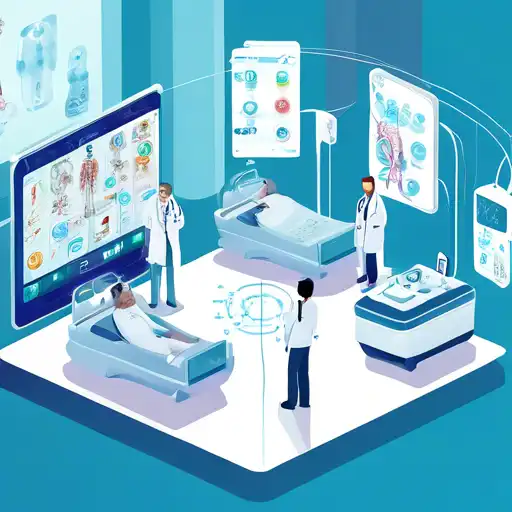Introduction to IoT in Healthcare
The integration of the Internet of Things (IoT) into healthcare is transforming the industry in unprecedented ways. By enabling devices to collect, analyze, and transmit health data in real-time, IoT technologies are improving patient outcomes, reducing costs, and enhancing the efficiency of healthcare services.
The Benefits of IoT in Healthcare
IoT in healthcare offers numerous benefits, including remote monitoring, improved patient care, and operational efficiency. Devices such as wearable fitness trackers and smart medical devices allow for continuous monitoring of patients' health, enabling timely interventions and personalized care plans.
Remote Patient Monitoring
One of the most significant advantages of IoT in healthcare is the ability to monitor patients remotely. This not only improves the quality of care for patients with chronic conditions but also reduces the need for hospital visits, saving time and resources.
Enhanced Patient Care
IoT devices provide healthcare professionals with real-time data on patient health, enabling more accurate diagnoses and tailored treatment plans. This leads to better patient outcomes and higher satisfaction rates.
Challenges and Solutions
Despite its benefits, the adoption of IoT in healthcare faces challenges such as data security and privacy concerns. However, advancements in encryption and blockchain technology are providing solutions to these issues, ensuring the safe and secure handling of sensitive health data.
Data Security
Protecting patient data is paramount in the healthcare industry. IoT devices must comply with strict data protection regulations to prevent breaches and ensure patient confidentiality.
Interoperability
Another challenge is the interoperability of IoT devices with existing healthcare systems. Standardizing protocols and adopting open-source platforms can help overcome this hurdle, facilitating seamless integration.
Future Prospects
The future of IoT in healthcare is bright, with ongoing advancements in technology paving the way for more innovative applications. From smart hospitals to AI-driven diagnostics, IoT is set to revolutionize the healthcare landscape further.
Smart Hospitals
Smart hospitals leverage IoT to optimize operations, enhance patient care, and reduce costs. By integrating IoT devices across various departments, hospitals can achieve higher efficiency and better patient outcomes.
AI and IoT
The combination of AI and IoT holds great promise for healthcare. AI algorithms can analyze the vast amounts of data generated by IoT devices to identify patterns, predict health issues, and recommend preventive measures.
Conclusion
IoT in healthcare is indeed a game changer, offering numerous benefits that improve patient care and operational efficiency. While challenges exist, technological advancements are addressing these issues, ensuring a secure and interoperable IoT ecosystem in healthcare. As we look to the future, the potential for IoT to further transform healthcare is limitless.
